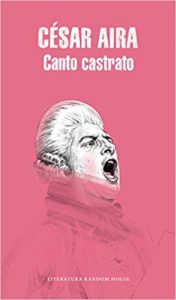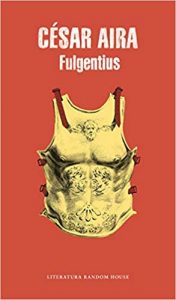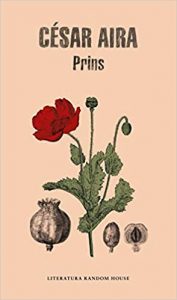Assuming the avant-garde in any art or creative manifestation is a weight subjected to the disturbing gravity of the sword of Damocles. Cesar Aira coexists with that role of outpost of Spanish literature, perhaps more solo than ever since Roberto bolaño He left us his long bad years ago.
The relationship between Aira and Bolaño had its pluses and minuses. But in the end the recognition between the two reached such curious extremes as Bolaño himself introducing the most fractious Patti Smith reading Aira's work.
Daring to cite the best books by César Aira is very impossible with a bibliography with hundreds of volumes and with plots that, when it comes to fiction, can often disconcert and fascinate from an exquisite mastery of forms. Almost always oriented towards that imprint in search of new narrative horizons, technical and plot evolutions.
In part we already know that the matter has a trick because between short novels, long stories, essays lighter by size and other small works, most of Aira's work can be circumscribed. But the point is that the entity of these works justify their independence.
Top 3 recommended books by César Aira
Castrato song
In Spain they were called capons, with that more traditional touch that turns the foreign into something more mundane. Precisely in the case of castrati, this Spanish term, now out of use, probably more accurately defined the no less sinister image of child singers castrated to preserve their timbre.
And on these characters, whose macabre resource was used for centuries until the 19th, César Aira builds this novel that moves through 18th century Europe, a continent that had been orphaned of political influences after the death of Louis XIV, whose reign It seemed to never end. Like any transition, the death of the sun king also led to a new artistic, customary and ornamental orientation for the entire court. And as often happens when an old regime fades away, outbreaks of freedom emerge in artistic forms or literature. Europe then surrendered to the Rococo trend, a kind of revolution that affected architecture, art and ornamentation, as well as fashion trends and even philosophy and thought.
A new individualism full of mysticism and full of sensuality was translated into more sinuous forms, in the overloaded nature of every representation. Court life seemed to take on a new color and the castrati resonated throughout Europe like a great current hit, with their high tones also refreshing the perspective of music as pure leisure and exoticism. In this scenario magnificently told by the author, we also enjoy an authentic historical narrative with all the geopolitical movements of the moment. The old Europe was bustling with effervescence to find new alliances of power.
Only..., driven by this new form of art, under those sensations of preponderance of the personal, love also emerges in the story with great force, through characters like Micchino, the best castrato of all and his meeting with Amanda , a woman as unhappy as she knows that love is something else. Passions unleashed in a world led to a transcendental change that would possibly lay the foundations of modernity.
Fulgentius
In the hands of César Aira, a purer historical novel is denatured or rather transformed, complemented, enriched with new prisms never approached by a historical fiction narrator always more convinced by the need for a constraining fidelity of the characters. But here is Aira, with his Fabius Exelsus Fulgentius, a general back from so many conquests and expansions who in the foothills of remote Vienna feels the inextinguishable flame of dramaturgy and prepares his army for an interpretation worthy of any God. who is passing through the Pannonia area and its capital Vindobona.
No wonder, at over sixty years old Fulgentius can approach that glorious representation of his life that makes him as close as possible to Olympus. Perhaps a parody on the ancestral desire for power of the human being and the lagoon of the vanities cultivated from him to the excesses in the nascent fishing ground of the Western mentality. But above all, an ironic, fun, curious work and, despite the distortion of classic argument, perfectly documented.
Prince
In a certain way, the strong need for narrative prospection of an author like César Aira limits him towards this greater dissemination of his work. But of course, we speak in quantitative and not qualitative terms. Because the important thing that can be deduced when reading a novel like this is that depending on which authors are not here to tell the same novel written since "The Story of Genji" was written (the one considered the first novel). The best thing about this story is that I don't know how inspiring, evocative of the author himself or of any person who at some point has felt like a creator. We all abandon ships that are not very fruitful for our daily vicissitudes.
But deep down, what would call us most powerfully when we discover our creative limitations or when we see that we have been doing the wrong thing for half of our lives, is to abandon ourselves to opium like the writer himself who is the protagonist of the story, who never wrote what there was. darling…
From the dissatisfaction of having been sold, our protagonist takes a bus with the unknown Alicia who sits next to him and throws himself into the open grave to the most psychedelic drugs in search of second chances, blame expiations or hasty reincarnations for lost causes. Psychedelia splashes from the protagonist to his reader, inviting us on a ticketless journey back to the very heart of creativity and its mundane temptations.




1 comment on “The 3 best books by César Aira”